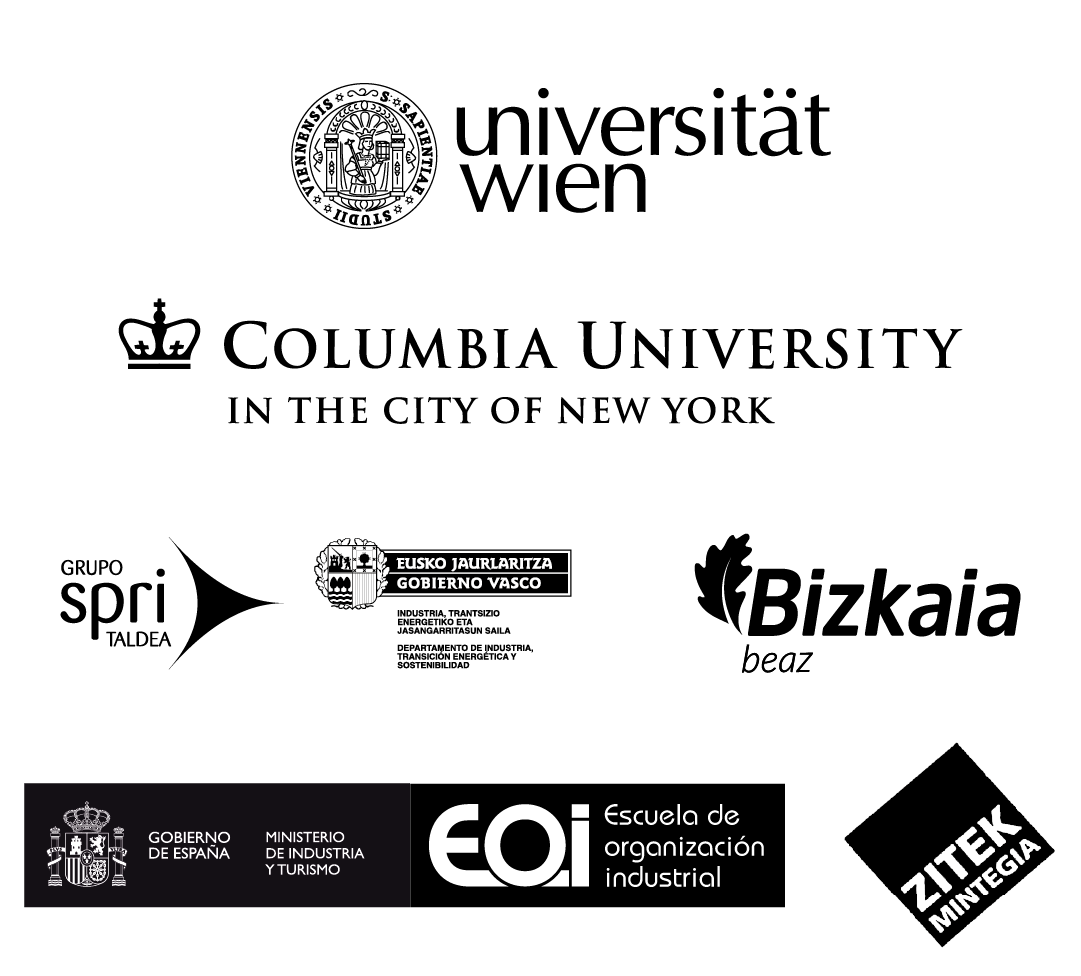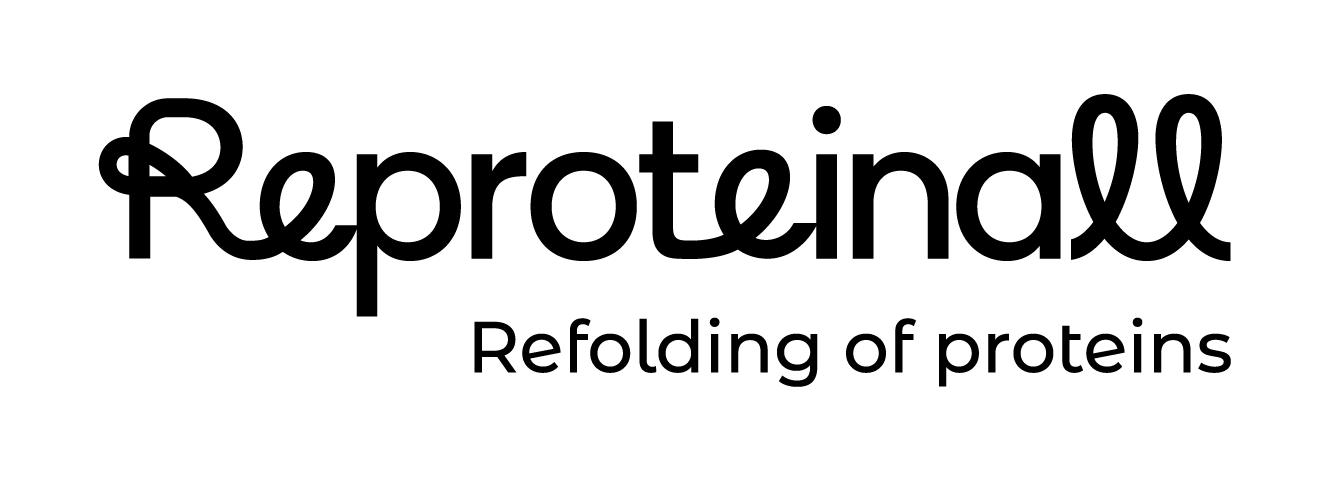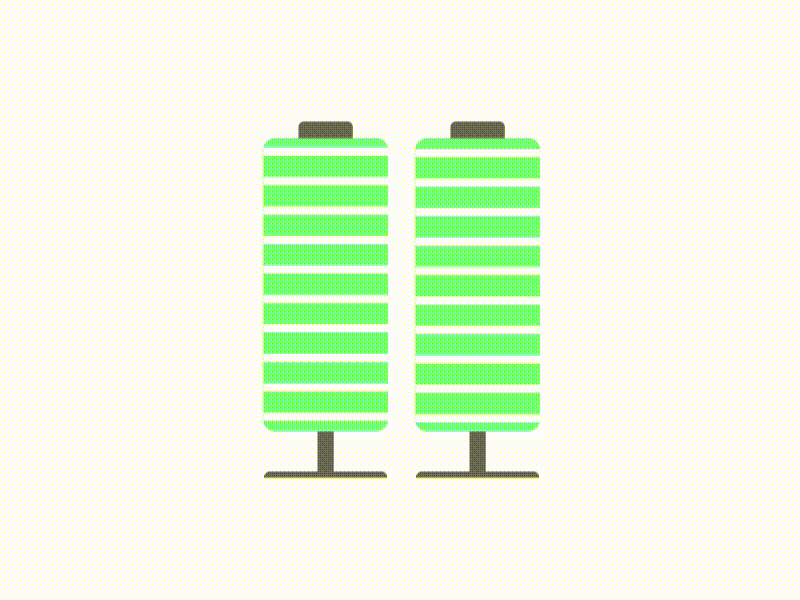Unlocking the potential of proteins
Innovation in protein purification
The ‘massage’ that proteins need
At ReProteinAll we have developed a pioneering technology based on soft nanopores to efficiently purify proteins, addressing the challenge of protein aggregation, a major cause of economic losses and low quality products in the biotech industry. Our patented technology detects and corrects misfolded proteins, improving yields and reducing costs.
Through an innovative low-pressure brushing mechanism, we achieve higher quality proteins and lower risk of aggregation, ensuring safer and more effective products for industrial sectors.
Our nanopores, inspired by natural processes, act as molecular therapists, using soft materials and specialised brushes to ‘massage’ misfolded proteins, guiding them towards their correct structure. This efficient and sustainable process prevents the formation of aggregates responsible for biotechnological failures and degenerative diseases, without resorting to high energy consumption or aggressive materials.
Competitive strength: more efficiency, less impact
Our technology reduces energy consumption by up to one million times compared to traditional methods, reducing environmental impact and eliminating the use of harmful chemicals.
Sustainability and cost savings, positioning us as the ideal solution to optimise processes, reduce costs and minimise the ecological footprint without compromising quality or efficiency.
%
Recover up to 70% of misfolded and aggregated proteins
%
Reduction of associated production costs by up to 71%
Our technology is backed by two key patents:
• Smart Nanopores to Detect and Unfold Misfolded Proteins (CU16347, 13/07/2016).
• Soft Nanopores for Protein Purification (CU16348, 13/07/2016).
Applications in three key industries
Alimentary
Our technology ensures that proteins in foods such as cultured meat, vegan products and supplements maintain their functionality.
We prevent denaturation and aggregation during production, improving texture, taste and bioavailability. This allows us to create more sustainable, effective and safer products, responding to the growing demand for high quality food.
Pharmaceutical
In the pharmaceutical industry, our technology ensures the production of pure, correctly folded therapeutic proteins, such as monoclonal antibodies and insulin.
We reduce protein aggregation, which improves the safety, efficacy and stability of drugs, while optimising production costs and quality control in biotech processes.
Chemical
Our technology maintains the stability and activity of key industrial enzymes in processes such as biofuels and plastics recycling.
It helps prevent enzyme aggregation under extreme conditions, improving the efficiency of these processes and reducing the need to replace enzymes, which reduces costs and promotes more sustainable practices in the chemical industry.
ReProteinAll: A Journey into Protein Refolding Technology
ReProteinAll’s groundbreaking technology is built on years of research into how proteins fold and how we can help them refold when they go astray. Proteins are the workhorses of life, carrying out countless functions in our bodies. But for them to work properly, they need to fold into specific shapes. When this process goes wrong, it can lead to serious problems like disease or production inefficiencies in industries like medicine and food. Let’s look at how our journey began and where it has taken us.
Chaperonins: Nature’s Protein Helpers
Our story starts with the GroEL/GroES chaperonin complex, a biological machine inside cells that helps misfolded proteins refold into their correct shapes. Imagine a tiny workshop with two chambers, where proteins move back and forth until they are fixed. Research in 2006 and 2008 revealed how these chambers work together like a conveyor belt, using energy to squeeze and stretch proteins into their proper forms. This process prevents the release of misfolded proteins, which could otherwise stick together and cause harm. These findings taught us that movement and confinement play key roles in refolding proteins efficiently.
References (10.1529/biophysj.105.074898; 10.1371/journal.pcbi.1000006)
The Caterpillar Model: A Recipe for Protein Folding
Next, in 2014, we developed the Caterpillar model, a simplified yet powerful way to study how proteins fold. Think of it as creating a recipe: the model predicts which ingredients (amino acids) and steps will lead to a perfectly folded protein. Using this method, we could design artificial proteins that fold just as well as natural ones. This breakthrough showed us that protein folding follows certain universal rules, making it possible to engineer solutions for real-world challenges.
References (10.1371/journal.pone.0112852)
Artificial Pores: Engineering Solutions Inspired by Nature
In 2018, we turned our attention to creating artificial tools that mimic the chaperonin’s functions. We designed soft, brush-coated pores that proteins can pass through under the force of flowing liquid. This setup acts like a car wash for proteins—gently scrubbing away misfolded shapes and helping them find their correct forms. These engineered pores can also break apart protein clumps, making them invaluable for industrial protein purification and drug manufacturing.
References (10.1016/j.molliq.2018.06.009)
Bringing It All Together
ReProteinAll combines groundbreaking insights and innovative technologies to create solutions for industries that rely on proteins, including biotechnology, medicine, and food production. By mimicking nature’s best ideas and adding our own engineering twists, we’re paving the way for more efficient, sustainable, and affordable protein-based products.
Central to this innovation is ReProteinAll’s pending patent, shared with Columbia University, which features a system employing soft nanopores lined with hydrophobic polymers. These nanopores are designed to selectively capture and refold misfolded proteins. Misfolded proteins, which expose hydrophobic regions typically hidden in correctly folded proteins, are attracted to the hydrophobic interior of the nanopores. This interaction facilitates the unfolding of the misfolded proteins, allowing them to refold properly as they exit the nanopore.
This patented system offers a high-throughput solution for protein purification, effectively preventing aggregation and restoring protein function. By integrating this soft nanopore technology, ReProteinAll enhances its ability to process a wide variety of proteins, ensuring they achieve their correct conformations. This advancement not only boosts the efficiency of protein-based products but also holds transformative potential in disease diagnosis and treatment, particularly in addressing conditions where misfolded proteins play a significant role.
For more details: https://inventions.techventures.columbia.edu/technologies/soft-nanopore-for-of–CU16348
Our team
Meet our partners

Meet our partners

We would be delighted to hear from you.
Please provide us with your contact details, a short description of your request and we will get back to you.



